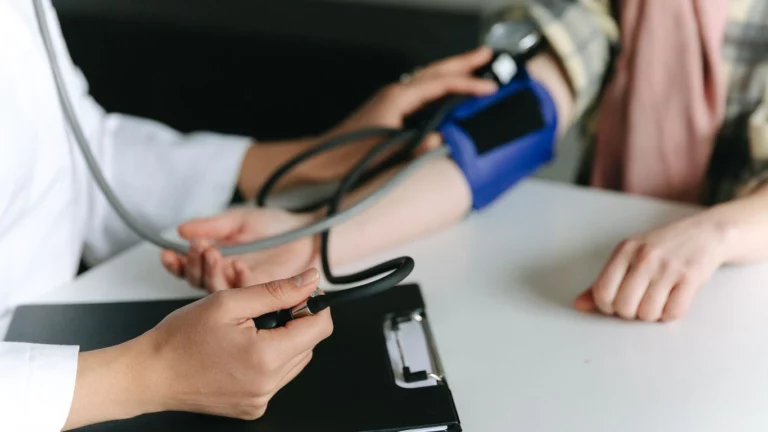Discover How RA Affects Blood Vessels and Heart Health Risks
As a Rheumatology nurse practitioner, I get this question more often than you’d think: does RA affect blood vessels? Short answer? Yes, and in more ways than people realize. Rheumatoid arthritis (RA) isn’t just about achy joints—it’s a full-body inflammatory condition, and that inflammation can take a toll on your blood vessels, too. I’ve seen firsthand how patients with long-standing RA develop cardiovascular complications they didn’t expect, and it’s a topic that deserves a lot more attention.
How RA Moves Beyond the Joints

RA is notorious for joint destruction, but what’s often missed is how it behaves like a systemic troublemaker. We’re talking lungs, eyes, skin—and yes, blood vessels. I remember a patient in her mid-50s, we’ll call her Lisa, who came in complaining of chest tightness. We’d been managing her RA for years, but this was new. After a referral to cardiology and a bit of digging, it turned out she had vasculitis—a condition where the blood vessels get inflamed. That was her RA talking, just in a different language.
What’s Actually Happening to the Blood Vessels?
So, what’s going on under the surface? In people with RA, the immune system goes rogue. It doesn’t just attack joint linings—it can also target the endothelium, which is the delicate inner lining of blood vessels. Chronic inflammation here can lead to:
- Endothelial dysfunction – basically, the blood vessels don’t dilate and constrict like they should
- Accelerated atherosclerosis – that’s a buildup of plaque that raises your risk of heart attack and stroke
- Vasculitis – this one’s more rare, but it’s where blood vessels themselves get inflamed and damaged
And none of this is just theoretical. Research backs it up, and so does real life. I’ve had more than one patient whose first signs of cardiovascular issues turned out to be linked to their RA flares. It’s like a domino effect of inflammation.
Understanding the Link Between RA and Cardiovascular Risk

Now, let’s talk heart health. Most folks are shocked when I tell them that people with RA have roughly double the risk of developing cardiovascular disease compared to the general population. Why? Inflammation is a major player in both RA and atherosclerosis.
Inflammation: The Common Denominator
Think of inflammation like fire—it doesn’t just burn the joint cartilage, it scorches blood vessels too. Over time, this persistent inflammation can cause cholesterol plaques to build up faster and make them more likely to rupture. That’s a fast track to heart attacks and strokes. In clinic, I make it a point to monitor cardiovascular risk factors in my RA patients—because managing their inflammation is about more than just pain control.
Not Just the Heart – Other Vascular Issues
It’s not always about the heart. RA can also lead to:
- Peripheral artery disease (PAD) – causing pain in the legs while walking
- Raynaud’s phenomenon – those color-changing fingers and toes, often triggered by cold or stress
- Venous thromboembolism (VTE) – an increased risk of blood clots
I’ve had patients who suddenly started experiencing cold, discolored fingers during the winter and assumed it was just weather sensitivity. Turns out, it was Raynaud’s, likely triggered by their RA. Knowing what to look for really does make a difference.
Spotting the Signs Early

One thing I always tell my patients—don’t ignore subtle changes. Fatigue, shortness of breath, unexplained leg pain—these can all be vascular red flags, especially in someone living with RA. And listen, it’s not about turning every symptom into a crisis. But when you’ve been working in Rheumatology as long as I have, you start to trust your gut—and teach patients to trust theirs, too.
We’ll dig even deeper into managing these risks and the role of medications in the next section, but for now, just remember: RA doesn’t stop at the joints, and neither should our conversations about it.
Medications and Their Impact on Blood Vessels

Let’s talk meds—because as you probably already know, what we use to treat RA can either help or hurt the cardiovascular system. One of the first things I learned early in my NP training was how intertwined inflammation and heart health really are. If we’re calming inflammation in the joints, we’re also likely reducing risk to the blood vessels. But not every RA med is created equal in that department.
DMARDs: Double Duty?
Disease-modifying antirheumatic drugs (DMARDs) like methotrexate don’t just ease joint pain—they may actually lower cardiovascular risk. That’s a big win. I’ve had several patients who were hesitant to start methotrexate, worried about side effects. But once we explained how it might also protect their heart, it shifted their perspective. There’s real power in understanding the “why” behind a prescription.
- Methotrexate: Some studies suggest it reduces heart attack risk by lowering systemic inflammation.
- Hydroxychloroquine: Often used in milder RA, may have some heart-friendly properties as well.
- Biologics: These targeted therapies can help reduce inflammation dramatically—but they come with their own considerations.
Biologics like TNF inhibitors can be incredibly effective, but there’s ongoing debate about their impact on heart health. I always walk through the pros and cons with patients—because when it comes to E-E-A-T, patient education and transparency matter.
Lifestyle Habits That Support Vascular Health in RA

Medications are crucial, but I’m a big believer in the “whole picture” approach. In clinic, I always tell patients: think of your body like a garden—meds are the fertilizer, but diet, exercise, sleep, and stress are the sunlight and water. You need all of it to grow strong.
Anti-Inflammatory Diet Wins
It’s not about being perfect, but every little bit helps. I had a lovely patient—Maria, mid-60s—who started incorporating more omega-3s and leafy greens after we talked diet. She swore her morning stiffness improved and her blood pressure came down. Coincidence? Maybe. But she felt better, and that’s what counts.
- Incorporate foods rich in omega-3 fatty acids like salmon, flaxseeds, and walnuts.
- Limit processed foods and added sugars—they’re inflammation fuel.
- Drink plenty of water and cut back on excess salt and saturated fat.
Keep That Body Moving
I know, I know—when your joints ache, a morning jog isn’t exactly appealing. But even gentle movement helps. Walking, stretching, swimming—anything that gets the blood flowing is a win for your vessels. I always say: move in the ways your body allows, not the ways it used to. Progress over perfection.
Regular Screenings: Your RA Vascular Safety Net

One thing I try to reinforce in every visit is that routine screening isn’t optional—it’s essential. Blood pressure checks, cholesterol panels, EKGs, and sometimes even stress tests—all of these can catch vascular issues before they become emergencies.
What to Ask Your Provider
If you’re living with RA (or caring for someone who is), make sure cardiovascular risk comes up in your checkups. Here’s a little list I often suggest my patients keep handy:
- “How’s my blood pressure trending?”
- “Should we check my cholesterol levels soon?”
- “Am I due for any heart screening tests?”
- “Could my medication be affecting my heart health?”
Empowered patients ask these kinds of questions. And honestly, those convos help me tailor care in a much more personalized way. Trust me, we appreciate it when patients take an active role in their health—it makes everything more collaborative.
Does RA Affect Blood Vessels? You Bet—But Knowledge is Power
By now, I hope it’s crystal clear: the answer to “does RA affect blood vessels?” is a loud and resounding yes. But that doesn’t mean you’re powerless. From medications and lifestyle shifts to screenings and real conversations with your care team—there’s so much you can do. And as someone who’s seen this play out daily in clinical practice, I can tell you with full confidence: informed patients live better, healthier lives.
Managing RA-Related Blood Vessel Issues: What You Can Do Today

By the time someone has lived with RA for a while, it’s clear this isn’t just about swollen joints or stiffness in the morning. It’s a chronic condition that demands vigilance—especially when it comes to your blood vessels. I’ve walked alongside many patients as they navigate these challenges, and my best advice? Be proactive, not reactive.
Work Closely With Your Care Team
From my experience, the biggest game-changer is having an open, ongoing dialogue with your rheumatologist and primary care provider. You want to make sure they’re not only monitoring your joint health but also keeping a close eye on cardiovascular risk factors. That means regular labs, blood pressure checks, and sometimes even imaging.
Don’t be shy about sharing any new symptoms—like unexplained fatigue, numbness, or chest discomfort—even if they seem minor. Early detection of blood vessel problems can make all the difference in preventing serious complications.
Medications: Keep the Balance
We talked about DMARDs and biologics in the last section, but managing RA medications is an ongoing balancing act. Sometimes, medications can have side effects that impact your heart or blood vessels, so keeping your healthcare team updated on how you’re feeling helps tailor your treatment safely.
It’s also worth noting that some newer RA treatments are being studied specifically for their effects on cardiovascular health. Staying informed and asking your provider about the latest options can be empowering.
Emotional Health and Vascular Wellness: The Hidden Connection

One thing that surprised me early on in my career is how often emotional health ties directly into physical health, especially for chronic conditions like RA. Stress, anxiety, and depression can actually make inflammation worse, which then impacts blood vessels.
I encourage patients to explore stress management techniques that work for them—whether that’s mindfulness, yoga, therapy, or simply carving out quiet time. The mind-body connection isn’t just a buzzword; it’s a real part of managing RA and its vascular risks.
- Try deep breathing exercises for 5 minutes daily.
- Engage in low-impact activities like tai chi or gentle stretching.
- Keep a gratitude journal to focus on positive moments.
- Connect with support groups—sometimes just talking with others who “get it” can ease the burden.
Looking Ahead: Research and Hope for RA and Blood Vessel Health
The good news? Science is advancing every day. Research into the relationship between RA and cardiovascular disease is growing, with new treatments on the horizon aiming to tackle both inflammation and vascular damage more effectively.
For example, some clinical trials are exploring how certain biologics not only control RA symptoms but might also improve blood vessel function. While it’s not a magic bullet yet, the evolving landscape means better outcomes are possible.
As someone deeply involved in Rheumatology care, it’s exciting to see these developments firsthand. Staying informed and engaged with your care team means you’re not just waiting for breakthroughs—you’re actively part of the journey.
Final Thoughts on Does RA Affect Blood Vessels?
It’s clear: RA’s impact goes well beyond joint pain. If you or a loved one lives with this condition, understanding how it affects blood vessels is crucial. From inflammation to medication effects, lifestyle choices to emotional wellness, managing RA holistically can protect your vascular health and improve your overall quality of life.
If you’re ever in doubt or feel like your symptoms are shifting, don’t hesitate to reach out to your healthcare providers. Trust me, early conversations can make a huge difference.
References
Disclaimer
This article is intended for educational purposes and should not replace professional medical advice. Always consult your healthcare provider regarding any questions or concerns about rheumatoid arthritis and its effects on blood vessels or overall health.

Tarra Nugroho is a dedicated Nurse Practitioner with a strong foundation in family and preventive care. She brings both compassion and clinical expertise to her practice, focusing on patient-centered care and health education. As a contributor to Healthusias.com, Tarra translates medical knowledge into clear, empowering articles on topics like women’s health, chronic disease management, and lifestyle medicine. Her mission is simple: help people feel seen, heard, and informed—both in the clinic and through the content she creates. When she’s not caring for patients, Tarra enjoys weekend hikes, plant-based cooking, and curling up with a good health podcast.






